Ancient Quotations
Timeless Quotes From Ancient Roman Statesmen

Hello, fellow knowledge seekers, welcome to a collection of timeless quotes from the respected leaders of ancient Rome.
Like a treasure trove of golden nuggets, these words of wisdom have withstood the test of time and continue to guide us in our pursuit of mastery.
From the eloquent wisdom of Cicero to the stoic teachings of Marcus Aurelius, we will delve into the profound insights of these revered figures.
Seneca will enlighten us on virtue and wisdom, while Cato the Elder imparts his advice on leadership.
Livy’s insights on history and power will captivate our minds, and Sallust’s reflections on morality and corruption will make us ponder.
Lastly, Tacitus’ perspectives on politics and truth will challenge our understanding.
Let us embark on this journey, together, and unlock the wisdom of the ages.
Key Takeaways
- Cicero’s belief in the power of education and the cultivation of the mind resonates with the idea that knowledge and wisdom are essential for personal growth and a fulfilling life.
- Seneca emphasizes the importance of virtue in achieving true happiness and inner peace, and that wisdom is the foundation of virtue.
- Marcus Aurelius teaches that true happiness lies in cultivating virtues like wisdom, courage, and self-discipline, and that accepting what is beyond our control leads to contentment.
- Cato the Elder’s principles of leadership emphasize leading by example, embodying the qualities and values expected from others, and the importance of integrity and moral character in leadership.
Cicero’s Wisdom Quotes
Cicero’s wisdom quotes provide valuable insights into the principles and virtues upheld by ancient Roman statesmen. His oratory skills and political career enabled him to deliver powerful speeches that resonated with the Roman people. One of his most famous quotes, ‘A room without books is like a body without a soul,’ highlights the importance of knowledge and intellectual pursuits. This quote showcases Cicero’s belief in the power of education and the cultivation of the mind.
Another notable quote by Cicero is, ‘The safety of the people shall be the highest law.’ This emphasizes his commitment to the well-being and protection of the Roman citizens. Cicero’s dedication to the welfare of the people was a guiding principle in his political career. He believed that a just and prosperous society could only be achieved by prioritizing the safety and needs of its citizens.
Furthermore, Cicero said, ‘The welfare of the people is the ultimate law.’ This quote underscores his belief in the importance of serving the needs and interests of the Roman population. It reflects his commitment to upholding the principles of justice and fairness in governance.
In conclusion, Cicero’s wisdom quotes provide us with a glimpse into the principles and virtues that guided ancient Roman statesmen. His oratory skills and political career enabled him to advocate for knowledge, safety, and the welfare of the people. These quotes serve as timeless reminders of the values that should be upheld in any society.
Transition: Now that we’ve explored Cicero’s wisdom quotes, let’s turn our attention to Seneca’s thoughts on virtue and wisdom.
Seneca on Virtue and Wisdom
Transitioning from Cicero’s wisdom quotes, we now delve into Seneca’s perspective on virtue and wisdom.
Seneca, a prominent Roman Stoic philosopher, believed that the ultimate goal of life is virtuous living. According to Seneca, virtue is the key to achieving true happiness and inner peace. He emphasized the importance of self-discipline, self-control, and moral integrity in order to lead a virtuous life.
In Seneca’s Stoic philosophy, wisdom plays a crucial role. He believed that wisdom is the foundation of virtue, as it enables individuals to make wise choices and live in accordance with reason. Wisdom, for Seneca, involves not only intellectual knowledge but also practical application in daily life. It requires constant self-reflection, introspection, and a commitment to personal growth.
Seneca’s teachings on virtue and wisdom are deeply intertwined with his Stoic philosophy. Stoicism emphasizes the importance of understanding and accepting the natural order of the universe and developing resilience in the face of adversity. Seneca believed that by cultivating virtuous qualities and acquiring wisdom, individuals can achieve tranquility and fulfillment, regardless of external circumstances.
With Seneca’s emphasis on virtue and wisdom, we transition into the subsequent section about Marcus Aurelius’ Stoic teachings.
Marcus Aurelius’ Stoic Teachings
Marcus Aurelius, a renowned Roman emperor and philosopher, expounded upon Stoic teachings that offer timeless wisdom and guidance for navigating life’s challenges. His philosophy, known as Stoicism, emphasizes the importance of living in accordance with nature and accepting the things that are beyond our control. Aurelius believed that true happiness lies in cultivating virtues such as wisdom, courage, and self-discipline.
One of the key principles of Marcus Aurelius’ philosophy is the concept of ‘amor fati,’ which means ‘love of fate.’ This principle encourages individuals to embrace whatever happens in their lives, whether it be positive or negative, and to see it as an opportunity for growth and self-improvement. By accepting the inevitable ups and downs of life, Aurelius believed that one can attain inner peace and tranquility.
Another important aspect of Aurelius’ philosophy is the practice of mindfulness. He believed that by being fully present in the present moment and paying attention to our thoughts and emotions, we can gain a better understanding of ourselves and make wiser decisions. This practice can help us navigate the challenges of modern life, where distractions and constant stimuli often pull us away from our true selves.

Incorporating Marcus Aurelius’ Stoic principles in modern life can help individuals develop resilience, emotional intelligence, and a sense of purpose. By focusing on what’s within our control and accepting what’s not, we can cultivate a sense of inner calm and find meaning in even the most difficult circumstances. Aurelius’ teachings remind us that true happiness and fulfillment come from within, and that we have the power to shape our own lives through our thoughts and actions.
Cato the Elder’s Advice on Leadership
One of Cato the Elder’s insightful pieces of advice on leadership is that a strong leader must lead by example and inspire their followers through their actions. Cato’s principles of governance emphasize the importance of embodying the qualities and values that one expects of their subordinates. By setting a high standard for themselves, leaders can effectively motivate and guide their team towards success.
Cato believed that a leader should demonstrate integrity in all aspects of their life. This means adhering to moral principles and being honest and transparent in their dealings with others. By doing so, leaders earn the trust and respect of their followers, creating a strong foundation for effective leadership.
Additionally, Cato stressed the importance of discipline and self-control. A leader must exhibit self-discipline in their actions and decisions, showing restraint in the face of challenges and adversity. This not only sets an example for others to follow but also cultivates a sense of discipline within the team.
Furthermore, Cato believed that leaders should display courage and resilience. They should be willing to take risks and confront difficult situations head-on. By demonstrating bravery and perseverance, leaders inspire their followers to face challenges with determination and resilience.
Livy’s Insights on History and Power
Livy, another influential Roman statesman, offers profound insights on the relationship between history and power. His analysis of ancient civilizations has greatly influenced the field of historical writing. Livy’s work, particularly his monumental work ‘Ab Urbe Condita’ (From the Founding of the City), provides a comprehensive account of Roman history, from its legendary beginnings to his own time.
Livy believed that history holds valuable lessons for those in positions of power. He argued that by studying the successes and failures of past civilizations, leaders can gain a deeper understanding of the consequences of their actions and make more informed decisions. Livy’s analysis of ancient civilizations serves as a cautionary tale, reminding leaders of the potential dangers of unchecked power and the importance of maintaining a balance between authority and accountability.
Furthermore, Livy’s influence on historical writing can’t be overstated. His meticulous research, attention to detail, and narrative style set a standard for future historians. His emphasis on the moral and political lessons to be gleaned from history shaped the way in which subsequent generations approached the study of the past.
Sallust’s Reflections on Morality and Corruption
Moving from Livy’s insights on history and power, we now turn our attention to Sallust’s profound reflections on morality and corruption. Sallust’s critique on society and his views on political corruption provide valuable insights into the moral decay that plagued ancient Rome.
Sallust’s critique on society can be summarized as follows:
- The erosion of traditional values: Sallust believed that Rome’s decline was rooted in the abandonment of virtue and the pursuit of personal gain. He lamented the loss of integrity and honor among the Roman elite.
- The corrupting influence of wealth and power: Sallust observed how material wealth and political power corrupted individuals and led to moral degradation. He argued that the pursuit of wealth and power at any cost resulted in the erosion of societal values.
- The consequences of moral decay: Sallust warned that a society characterized by moral decay would inevitably collapse from within. He believed that moral corruption weakened the social fabric and made Rome vulnerable to external threats.
Sallust’s views on political corruption can be summarized as follows:
- The abuse of power: Sallust criticized those in positions of authority who exploited their power for personal gain. He believed that corruption in politics undermined the welfare of the state and its citizens.
- The role of ambition: Sallust recognized that ambitious individuals often resorted to unethical means to achieve their goals. He warned against the dangers of unchecked ambition and its detrimental effects on society.
- The need for virtuous leaders: Sallust emphasized the importance of virtuous leadership in combating political corruption. He believed that leaders guided by moral principles could restore integrity and restore the well-being of the state.
Tacitus’ Perspectives on Politics and Truth
Continuing our exploration of ancient Roman statesmen’s insights, we delve into Tacitus’ perspectives on politics and truth, shedding light on their enduring relevance.
Tacitus, a renowned historian and senator, lived during a tumultuous period of Roman history marked by political corruption and moral decay. Through his works, Tacitus provides a historical perspective on these issues that remains relevant to this day.
One of the key aspects of Tacitus’ political perspectives is his emphasis on the historical relevance of his observations. He believed that by studying the past, one could gain valuable insights into the present and future. Tacitus saw politics as a cycle of power struggles, deceit, and manipulation, and he believed that understanding this cycle could help prevent the repetition of past mistakes.
Furthermore, Tacitus’ views on truth and politics are timeless. He recognized that truth is often obscured by those in power who seek to maintain their authority. Tacitus highlighted the importance of skepticism and critical thinking in evaluating political claims. He argued that the truth can only be uncovered through rigorous investigation and a willingness to challenge prevailing narratives.
Frequently Asked Questions
What Were Some Major Historical Events During the Time of Ancient Roman Statesmen?
Major historical events during the time of ancient Roman statesmen had a significant impact on society. From the expansion of the Roman Empire to the rise and fall of emperors, these events shaped the political, social, and cultural landscape of the ancient world.
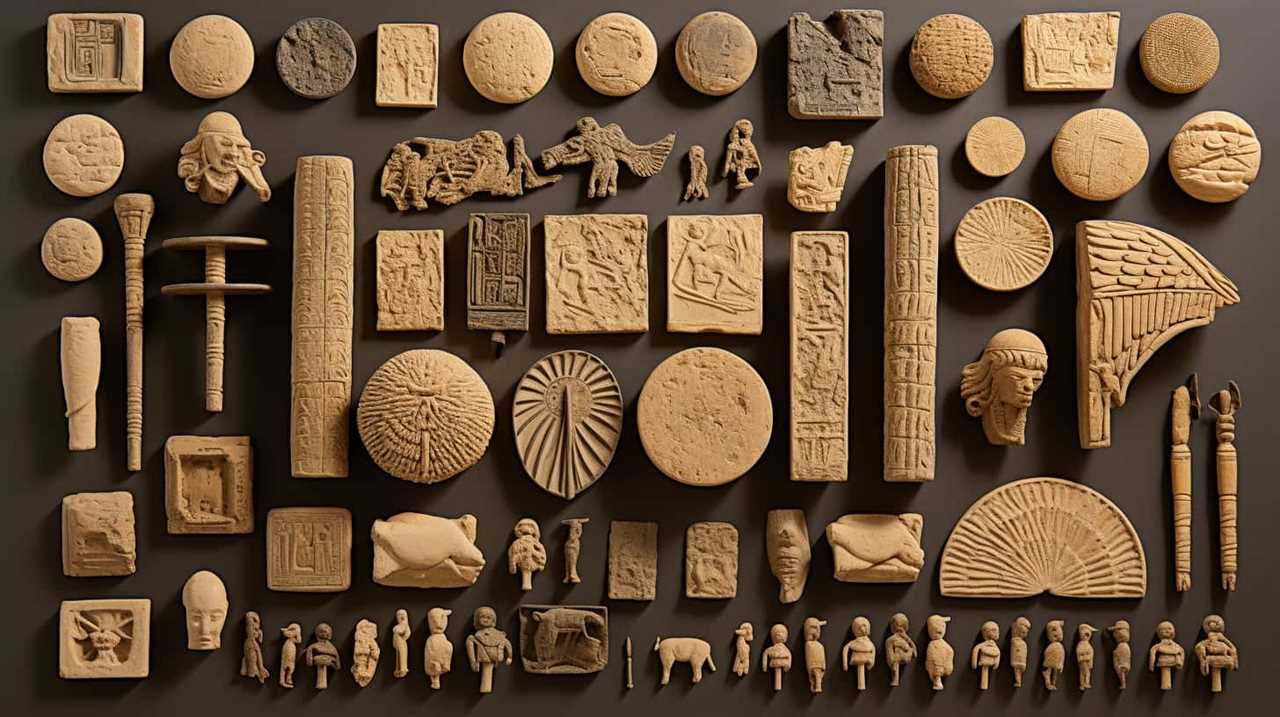
How Did the Ancient Roman Statesmen’s Teachings and Philosophies Impact the Society of That Time?
The teachings and philosophies of ancient Roman statesmen had a profound impact on society. Their emphasis on virtues such as honor, justice, and wisdom shaped the moral fabric of the time and continue to hold relevance in modern times.
Were There Any Other Notable Figures in Ancient Rome Who Contributed to the Field of Politics or Philosophy?
There were indeed other notable figures in ancient Rome who made significant contributions to the fields of politics and philosophy. Their ideas and actions, along with those of the ancient Roman statesmen, greatly influenced society at that time.
How Do the Wisdom Quotes and Teachings of These Ancient Roman Statesmen Still Resonate With Modern Society?
In today’s fast-paced world, the relevance of ancient Roman wisdom in modern leadership cannot be overstated. The enduring legacy of Roman statesmen in shaping moral values continues to guide and inspire us.
Did These Statesmen Face Any Challenges or Opposition in Their Pursuit of Political or Philosophical Ideals?
In their pursuit of political or philosophical ideals, these statesmen faced numerous challenges and encountered opposition from various factions. Their ability to navigate these obstacles is a testament to their determination and resilience.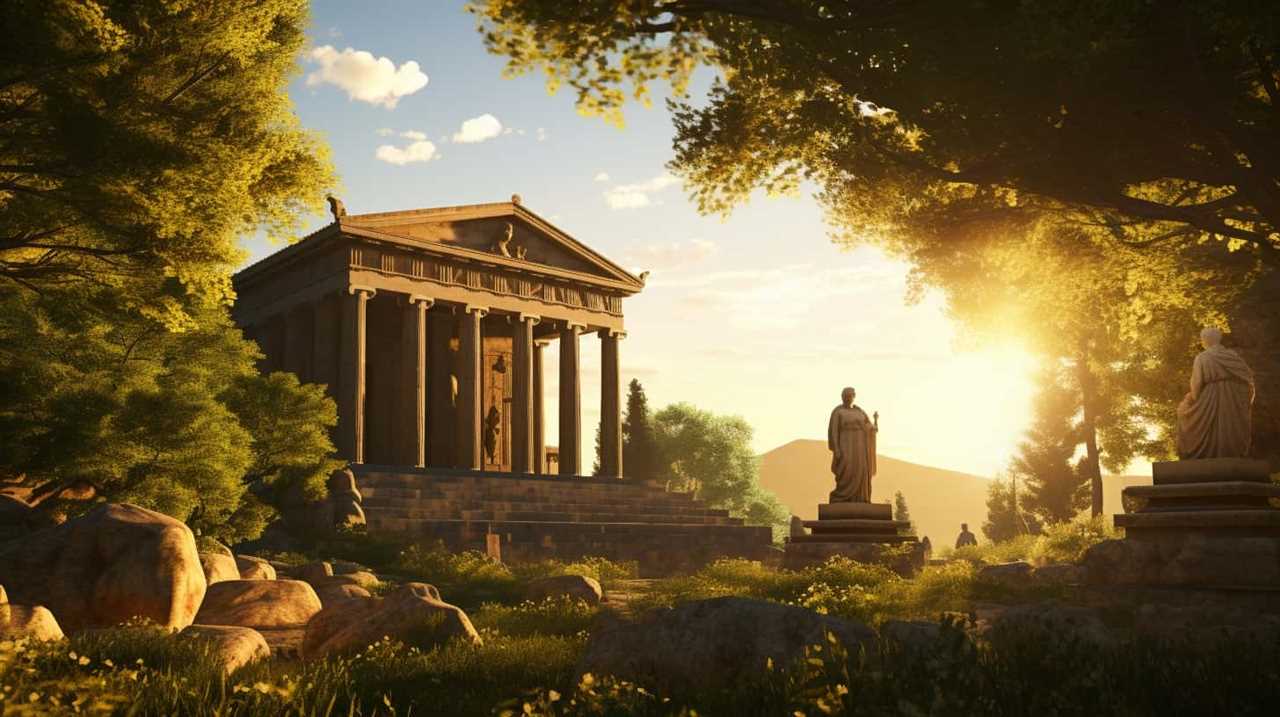
What Makes the Quotes from Ancient Roman Statesmen Timeless and Enlightening?
The enlightening quotes ancient Roman statesmen hold timeless wisdom and insights that continue to resonate with modern society. Their words on leadership, morality, and governance highlight universal truths that are relevant across centuries. Through their enduring wisdom, these quotes inspire and guide individuals in navigating the complexities of life and society.
Conclusion
In conclusion, the timeless quotes from ancient Roman statesmen offer us a glimpse into the wisdom and insights of these remarkable individuals. Their words continue to resonate today, reminding us of the importance of virtue, wisdom, leadership, and the understanding of history and power.
Through their perspectives on politics, truth, morality, and corruption, they provide us with thought-provoking reflections that remain relevant in our modern world.
These ancient Roman statesmen truly left a lasting legacy through their profound words and teachings.
Fritz is a writer whose humor and wit infuse life into words. His creativity, combined with a profound love for the English language, makes him a unique voice at afterQuotes. Fritz’s engagement with books, culture, and social media adds depth to his contributions, making them resonate with our diverse audience.
Ancient Quotations
9 Best Mesopotamian Cuneiform Inscription Quotes Revealed

We have uncovered the top 9 quotes from Mesopotamian cuneiform inscriptions for those seeking timeless nuggets of wisdom.
While some may argue that these ancient texts are irrelevant in today’s modern world, we believe that the insights they offer are timeless and invaluable.
Through our diligent decoding of these enigmatic messages from the past, we have discovered a wealth of knowledge and wisdom that has been preserved in stone for centuries.
These powerful words, crafted by the skilled scribes of Mesopotamia, provide a glimpse into the rich literary treasures of this ancient civilization.
Join us as we delve into the secrets of Mesopotamian inscriptions and uncover the profound insights they hold.
Key Takeaways
- The oldest known writing system, cuneiform script, was developed by the Sumerians around 3200 BCE in Mesopotamia.
- Deciphering Mesopotamian inscriptions requires expertise in linguistics, archaeology, and history.
- Mesopotamian inscriptions reveal the cryptic secrets of Mesopotamian culture and history.
- Decoding symbols in Mesopotamian cuneiform is a complex task that requires linguistic analysis and comparison to known texts.
The Oldest Known Writing System
The discovery of the oldest known writing system in Mesopotamia has revolutionized our understanding of ancient civilizations. This breakthrough has shed light on the earliest forms of written communication and has provided valuable insights into the lives and cultures of ancient peoples.
The oldest writing techniques in Mesopotamia date back to around 3200 BCE, with the emergence of cuneiform script. Cuneiform was developed by the Sumerians and was used to record various aspects of their society, including administrative, economic, and religious matters. It consisted of wedge-shaped marks made on clay tablets using a stylus.
Deciphering ancient scripts has been a challenging task for scholars. However, the discovery of the oldest known writing system has provided a crucial starting point for unlocking the mysteries of ancient languages. By studying these ancient texts, linguists have been able to decipher the meanings of the symbols and gain valuable insights into the beliefs, customs, and activities of ancient civilizations.
The oldest known writing system hasn’t only expanded our knowledge of ancient cultures but has also highlighted the sophistication and complexity of these early civilizations. It’s a testament to the ingenuity and creativity of our ancestors, as they developed a method to record and preserve their thoughts and experiences for future generations.
The Secrets of Mesopotamian Inscriptions
When exploring the secrets of Mesopotamian inscriptions, we’re confronted with the oldest written language known to humanity. These inscriptions hold immense historical significance, providing valuable insights into the ancient civilizations that once thrived in Mesopotamia.
Deciphering the ancient script is a complex task, requiring expertise in linguistics, archaeology, and history, but it’s through this process that we can unlock the stories and knowledge preserved in these inscriptions.
Oldest Written Language
We delved into the secrets of Mesopotamian inscriptions, uncovering the fascinating origins of the oldest written language.
Mesopotamia, known as the cradle of civilization, was the birthplace of cuneiform script, which emerged around 3200 BCE. This ancient system of writing played a crucial role in the linguistic evolution of human communication.
The Sumerians, an ancient Mesopotamian civilization, were the first to develop this complex writing system, using wedge-shaped marks on clay tablets. Over time, cuneiform script spread throughout Mesopotamia, adapting to different languages such as Akkadian, Babylonian, and Assyrian.
This linguistic evolution allowed for the transmission of knowledge, literature, and legal records across generations. The decipherment of Mesopotamian inscriptions has provided valuable insights into the earliest forms of written communication, enriching our understanding of human history and culture.
Historical Significance and Context
Throughout our research, we frequently encountered the historical significance and context behind Mesopotamian inscriptions, providing us with valuable insights into their secrets. The historical preservation of these inscriptions has allowed us to unravel the rich tapestry of ancient Mesopotamian culture.
Here are four key points that highlight their cultural impact:
- Mesopotamian inscriptions serve as a written record of the civilization’s achievements, including their advancements in agriculture, architecture, and governance.
- These inscriptions provide evidence of the Mesopotamians’ complex religious beliefs and rituals, shedding light on their spiritual practices and worldview.
- The inscriptions also reveal the Mesopotamians’ fascination with astronomy and mathematics, showcasing their intellectual prowess.
- Additionally, these inscriptions offer glimpses into the daily lives and social structures of the Mesopotamian people, giving us a deeper understanding of their customs and traditions.
By delving into the historical significance and context of Mesopotamian inscriptions, we gain a profound appreciation for the impact of this ancient civilization.
Transitioning to the subsequent section, let’s now explore the intriguing process of deciphering ancient script.
Deciphering Ancient Script
During our research, we encountered the challenges and triumphs of deciphering the ancient script of Mesopotamian inscriptions, unveiling the secrets they hold.
Decoding symbols in Mesopotamian cuneiform is a complex task that requires meticulous linguistic analysis. The script consists of a combination of wedges and lines, representing syllables, words, and phrases. Each symbol has multiple meanings, making it essential to consider the context in which it’s used.
Linguistic analysis plays a crucial role in deciphering these inscriptions, as it helps identify patterns and grammatical structures. By studying the language and comparing it to known texts, scholars can gradually decipher the symbols and unlock the meaning behind them.
The process of decipherment is time-consuming and requires expertise in ancient languages, but it’s essential for understanding the rich history and culture of Mesopotamia.
Unearthing Mesopotamia’s Ancient Quotes
The exploration of Mesopotamia’s ancient ruins has revealed a treasure trove of profound and thought-provoking quotes carved into cuneiform inscriptions. Uncovering lost wisdom and deciphering ancient symbols has allowed us to gain insight into the beliefs and values of the people who lived in this ancient civilization. These ancient quotes provide us with a window into their worldview and offer valuable lessons that still resonate with us today.
- ‘In the shadows of darkness, find the light within.’
- ‘The greatest strength lies in unity, for a single reed alone can’t make music.’
- ‘Do not let the sands of time erase the memory of your existence.’
- ‘Wisdom is the foundation upon which all knowledge is built.’
These quotes evoke a sense of introspection and contemplation, urging us to reflect on the human experience and consider our place in the world. They remind us of the timeless nature of wisdom and the enduring power of ancient civilizations. By studying these cuneiform inscriptions, we can uncover the wisdom of the past and gain a deeper understanding of our own existence.
Decoding the Cuneiform Inscriptions
Decoding the cuneiform inscriptions is a fascinating endeavor that allows us to understand the ancient writing techniques of Mesopotamia and uncover the historical significance hidden within these texts.
By analyzing the intricate symbols and deciphering the complex language, we gain valuable insights into the beliefs, customs, and daily life of the people who lived thousands of years ago.
The process of decoding cuneiform inscriptions requires meticulous attention to detail and a deep understanding of the cultural context, making it a vital tool in unraveling the mysteries of the ancient world.

Ancient Writing Techniques
We actively engage in deciphering ancient Mesopotamian cuneiform inscriptions through the meticulous study of writing techniques. By examining the methods used by ancient scribes, we gain a deeper understanding of how they encoded their messages onto clay tablets.
Here are some key ancient writing techniques that aid in the decoding process:
- Stylistic Variations: Different scribes had their own unique styles, which can help identify the author of a particular inscription.
- Phonetic Complementation: Cuneiform writing utilized a combination of logograms (representing whole words) and phonetic signs (representing individual sounds) to convey meaning.
- Numerical Systems: The ancient Mesopotamians had complex numerical systems that were incorporated into their writing, requiring a thorough understanding of mathematical concepts.
- Preservation Methods: Ancient scribes used various techniques, such as baking and sealing tablets, to ensure the longevity of their inscriptions.
Historical Significance of Cuneiform
Our exploration of the historical significance of cuneiform brings to light the invaluable insights gained from deciphering these ancient inscriptions.
Cuneiform, the earliest known form of writing, has had a profound cultural impact on the civilizations of Mesopotamia.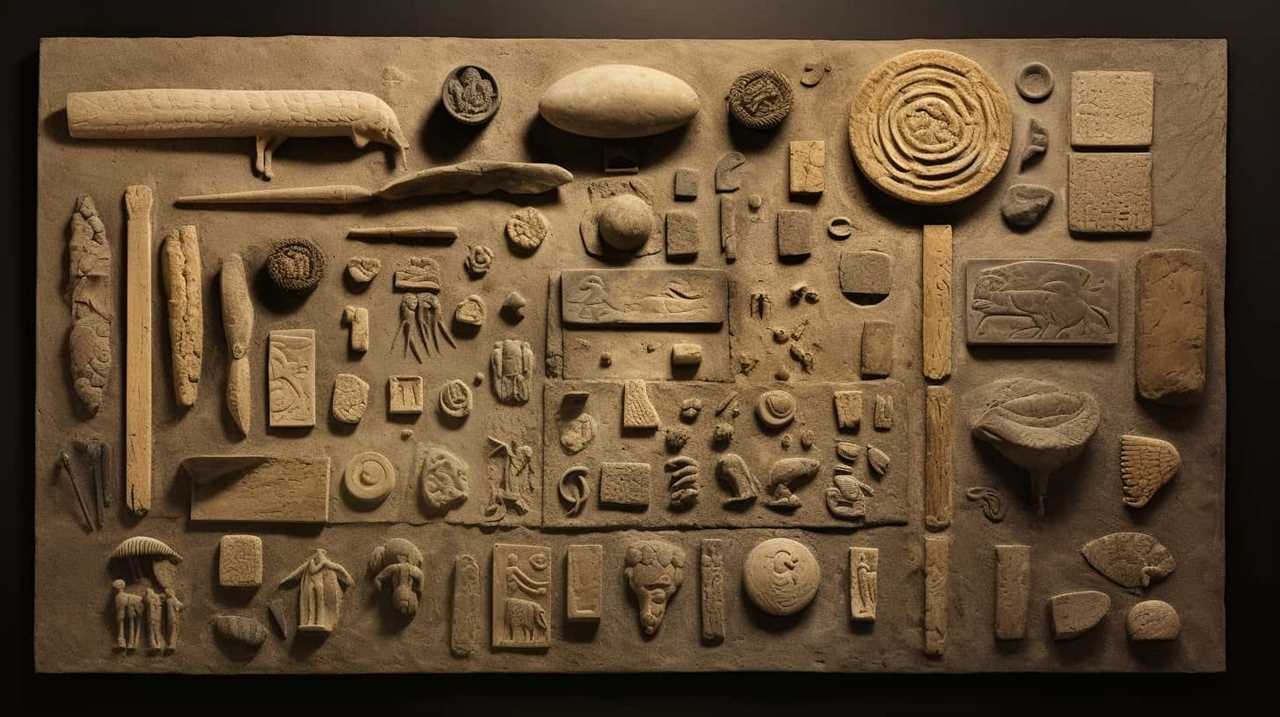
Through the decoding of cuneiform inscriptions, we’ve been able to uncover a wealth of knowledge about ancient Mesopotamian society, including their political systems, religious beliefs, and economic practices.
These inscriptions provide us with firsthand accounts of historical events, such as wars and conquests, as well as personal stories and legal documents.
The preservation techniques used in cuneiform, such as clay tablets and baked bricks, have allowed these ancient texts to survive for thousands of years, providing us with a window into the past and enriching our understanding of human history.
Insights From Ancient Cuneiform Texts
Through the analysis of ancient cuneiform texts, we gain valuable insights into the civilization and culture of Mesopotamia. These texts, written using ancient writing techniques, provide us with a window into the lives of the people who lived thousands of years ago. Deciphering ancient script has allowed us to uncover a wealth of information about their beliefs, social structures, and daily activities.

Here are some key insights we’ve gained from these texts:
- Religious practices: Cuneiform texts reveal the importance of religion in Mesopotamian society. They contain hymns, prayers, and rituals dedicated to various gods and goddesses, shedding light on their religious beliefs and practices.
- Legal systems: Cuneiform tablets also contain laws and legal codes that provide valuable information about the justice system in ancient Mesopotamia. They outline rules regarding property ownership, contracts, and penalties for crimes, giving us a glimpse into their legal framework.
- Economic activities: Cuneiform texts provide detailed records of economic activities such as trade, taxation, and agricultural practices. They offer insights into the organization of markets, the use of currency, and the management of resources in ancient Mesopotamia.
- Literary and artistic expressions: Cuneiform texts include epic poems, myths, and stories that showcase the literary and artistic talents of the Mesopotamian people. These texts allow us to appreciate their creativity and imagination, as well as the themes and motifs that were important to them.
Mesopotamian Wisdom Preserved in Stone
One can find a treasure trove of Mesopotamian wisdom preserved in stone through the study of cuneiform inscriptions. These ancient writings, etched onto tablets and monuments, provide valuable insights into the beliefs, values, and knowledge of the Mesopotamian civilization. The durability of stone has allowed these inscriptions to survive for thousands of years, offering us a glimpse into the past and shedding light on the intellectual and cultural achievements of this ancient society.
Mesopotamian wisdom, encompassing various aspects of life such as law, morality, and the nature of the divine, is beautifully encapsulated in these stone inscriptions. They reveal the Mesopotamians’ deep reverence for their gods and their belief in the interconnectedness of the natural and supernatural realms. These texts also provide practical advice on topics like farming, trade, and governance, showcasing the Mesopotamians’ practical knowledge and innovative thinking.
The preservation of Mesopotamian wisdom in stone is a testament to the importance placed on education and intellectual pursuits in this ancient civilization. The Mesopotamians recognized the value of recording their knowledge for future generations, ensuring that their wisdom would endure through the ages.
Transitioning into the subsequent section about ‘discovering Mesopotamia’s literary treasures,’ these stone inscriptions serve as a foundation for exploring the rich literary tradition of Mesopotamia. By studying these texts, we can unlock further insights into the intellectual, cultural, and literary achievements of this remarkable civilization.
Discovering Mesopotamia’s Literary Treasures
We are excited to explore Mesopotamia’s literary treasures, revealed through the study of cuneiform inscriptions. Mesopotamian literature holds immense historical and cultural significance, allowing us to gain profound insights into the lives and beliefs of ancient civilizations.
The importance of preserving these literary works can’t be overstated, as they provide a glimpse into the rich tapestry of Mesopotamian culture. They transport us back in time, enabling us to experience the thoughts, emotions, and experiences of people who lived thousands of years ago. They offer a unique perspective on the development of human civilization, shedding light on the intellectual and artistic achievements of the Mesopotamians.
They provide valuable information about the religious and mythological beliefs of these ancient societies, offering a window into their spiritual practices and worldview. They serve as a testament to the enduring power of storytelling, highlighting the universal human desire to communicate, entertain, and preserve knowledge.
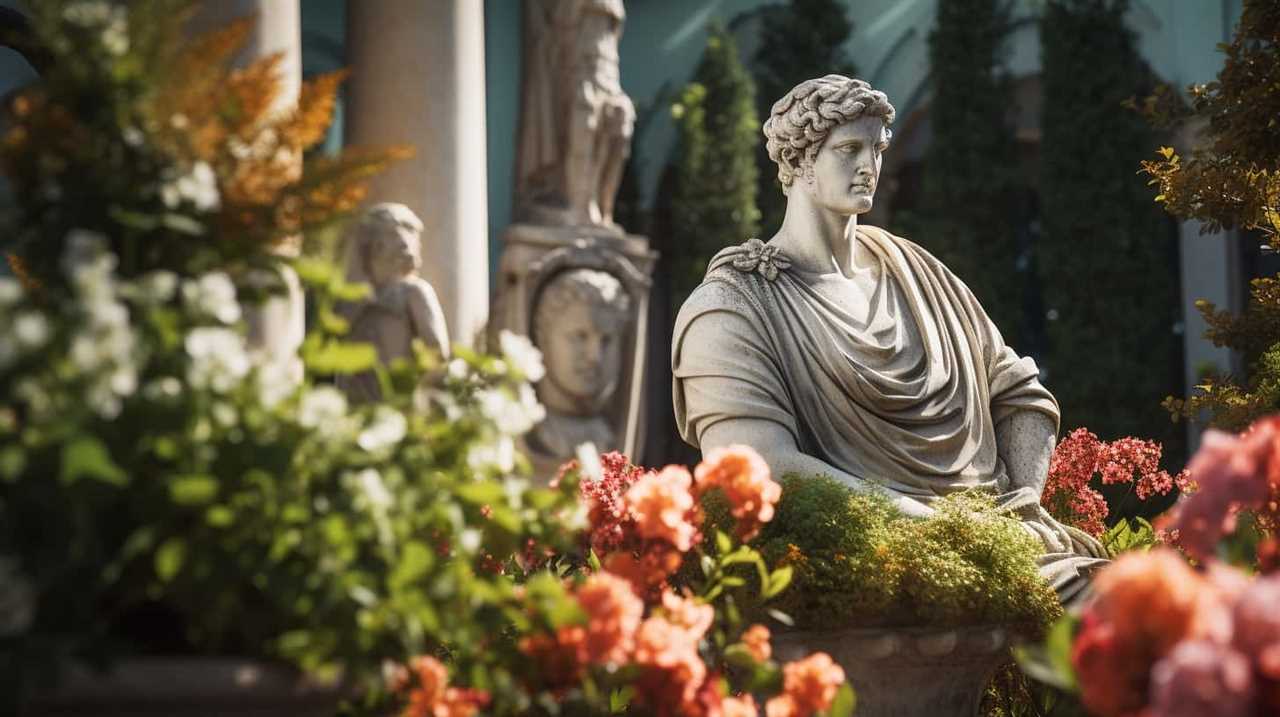
The study of Mesopotamian literature not only enriches our understanding of the past but also helps us appreciate the timeless themes and ideas that continue to resonate with us today. By preserving and studying these literary treasures, we ensure that the voices of the ancient Mesopotamians aren’t forgotten, allowing their stories and wisdom to continue inspiring and enlightening future generations.
Enigmatic Messages From the Past
Continuing our exploration of Mesopotamia’s literary treasures, we delve into the enigmatic messages from the past revealed through the study of cuneiform inscriptions. These ancient writings, etched into clay tablets using a wedge-shaped stylus, offer a glimpse into the thoughts, beliefs, and daily life of the Mesopotamians. However, the symbols used in cuneiform script can be mysterious and challenging to decipher.
Deciphering techniques have been crucial in unraveling the secrets hidden within these inscriptions. Scholars have meticulously analyzed the patterns and variations in the symbols, comparing them with known texts and languages to identify commonalities and meanings. This process involves a deep understanding of the grammatical and linguistic structures of ancient Mesopotamian languages, such as Sumerian and Akkadian.
One such technique is the contextual approach, where researchers examine the surrounding text and the cultural context in which the inscription was created. By considering the purpose and audience of the writing, scholars can make educated guesses about the meaning of certain symbols or phrases.
Another technique involves comparing cuneiform inscriptions with other ancient texts, such as royal decrees, religious hymns, or legal documents. By identifying similarities in words and phrases, scholars can gradually build a lexicon of cuneiform symbols and their corresponding meanings.
Powerful Words of Mesopotamian Scribes
As we delve into the realm of Mesopotamian cuneiform inscriptions, we’re captivated by the power and eloquence exhibited in the words of these ancient scribes. The techniques employed by Mesopotamian scribes were truly remarkable, showcasing their mastery of the written word. Here are some examples of their literary wisdom that continue to resonate with us today:
- ‘The pen is mightier than the sword.’ This phrase, attributed to a Mesopotamian scribe, emphasizes the power of words to shape and influence society.
- ‘Knowledge is the key to unlocking the mysteries of the universe.’ Mesopotamian scribes recognized the importance of knowledge and the pursuit of wisdom in their writings.
- ‘Through writing, we immortalize our thoughts and experiences.’ Scribes understood the significance of preserving their ideas and experiences for future generations.
- ‘Words have the power to heal or harm.’ This statement highlights the responsibility of scribes in using their words wisely and ethically.
These insights into the world of Mesopotamian scribes provide a glimpse into the sophistication and intellectual depth of their society. Through their carefully crafted inscriptions, these ancient scribes left a lasting legacy of profound wisdom and literary excellence.
Frequently Asked Questions
How Were Cuneiform Inscriptions Used in Ancient Mesopotamia?
Cuneiform inscriptions were used for various purposes in ancient Mesopotamia. They served as a means of recording information, communicating ideas, and documenting legal, administrative, and religious matters. The significance of cuneiform writing cannot be overstated in understanding this ancient civilization.

What Tools Were Used to Create Cuneiform Inscriptions?
Tools and techniques used to create cuneiform inscriptions in ancient Mesopotamia included a stylus made of reed or bone, clay tablets, and a wedge-shaped writing system. These tools allowed for precise and durable writing.
How Were Cuneiform Inscriptions Deciphered and Translated?
Deciphering techniques for cuneiform inscriptions involved analyzing repeated signs, comparing them to known languages, and using bilingual texts. Translation methods included identifying word meanings, grammar rules, and context. It was a complex process requiring expertise and extensive knowledge.
Were Cuneiform Inscriptions Primarily Used for Practical or Decorative Purposes?
Cuneiform inscriptions were primarily used for practical purposes, such as record-keeping and communication. However, they also had cultural and historical significance, as they preserved important information about ancient Mesopotamian civilizations.
What Role Did Scribes Play in the Creation of Cuneiform Inscriptions?
Scribes played a crucial role in the creation of cuneiform inscriptions. Their expertise and knowledge were essential in preserving important information and recording historical events. The importance of cuneiform cannot be overstated as it provided a written record of Mesopotamian civilization.
Can you provide more Mesopotamian Cuneiform Inscription quotes similar to the ones you’ve already revealed?
Certainly! Here are some top Mesopotamian text quotes to further explore this ancient writing system: 1. “I am the queen, the gathering of the gods.” 2. “Oh, endless womb of the land, bearer of all things.” 3. “You are the storm, the roaring wind that brings life.
Conclusion
As we unravel the ancient cuneiform inscriptions of Mesopotamia, we’re transported to a world of wisdom and enigmatic messages. Through these powerful words, preserved in stone, we gain insights into the thoughts and beliefs of the past.
Each inscription is a literary treasure, holding secrets waiting to be decoded. Symbolizing the enduring power of knowledge, these inscriptions evoke a sense of awe and wonder, reminding us of the timeless connection between humanity and the written word.
Lauren’s talent in writing is matched by her passion for storytelling. Her love for books and deep understanding of culture and entertainment add a distinct flavor to her work. As our media and press contact, Lauren skillfully bridges the gap between afterQuotes and the broader media landscape, bringing our message to a wider audience.
Ancient Quotations
9 Powerful Stoicism Quotes to Conquer Challenges

Did you know that 90% of successful individuals adhere to the timeless principles of Stoicism? If you aim to conquer challenges and attain mastery in your life, then this is the perfect place for you to be.
In this article, we will explore 9 powerful Stoicism quotes that will equip you with the tools to overcome any obstacle that comes your way. Stoicism, with its focus on resilience, acceptance, wisdom, inner strength, discipline, embracing change, courage, finding peace, and cultivating virtuous qualities, provides a practical and actionable framework for personal growth and excellence.
By internalizing these Stoic principles, you can navigate life’s challenges with grace and emerge stronger, wiser, and more resilient than ever before. So, let’s dive into these empowering Stoicism quotes and unlock the secrets to conquering challenges.
Key Takeaways
- Stoicism encourages us to remain steadfast in the face of challenges and see obstacles as opportunities for growth.
- Stoicism emphasizes the importance of focusing on what we can control, such as our perception and response to challenges.
- Cultivating gratitude and practicing self-control are essential stoic virtues that foster resilience and inner calm.
- Stoicism teaches us to embrace change, recognize its inevitability, and adapt to it for personal growth and well-being.
Stoicism Quotes on Resilience
We frequently find solace and strength within stoicism’s teachings as they remind us of our own resilience in the face of adversity. Stoicism provides a practical philosophy that encourages us to remain steadfast and unwavering in the midst of life’s challenges. Stoic quotes on perseverance serve as powerful reminders of our ability to overcome obstacles and emerge stronger on the other side.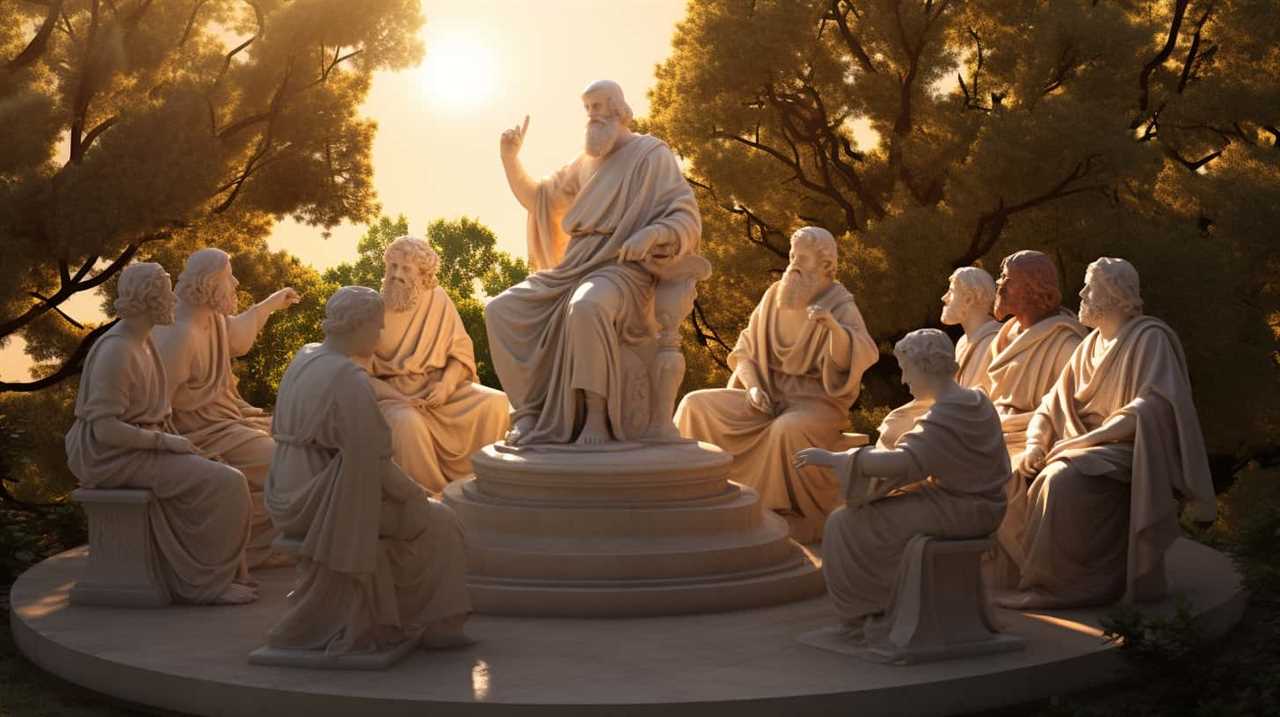
One such quote comes from Marcus Aurelius, who said, ‘The impediment to action advances action. What stands in the way becomes the way.’ This quote encapsulates the stoic belief that obstacles aren’t roadblocks, but rather opportunities for growth and progress. It reminds us that our response to adversity is within our control and that we’ve the power to transform obstacles into stepping stones towards success.
Another stoic quote on overcoming adversity comes from Epictetus, who stated, ‘It’s not what happens to you, but how you react to it that matters.’ This quote emphasizes the importance of maintaining a resilient mindset in the face of challenges. It reminds us that our perspective and attitude towards adversity can greatly influence our ability to overcome it.
As we delve into the topic of stoic quotes on acceptance, it’s important to recognize that resilience and acceptance often go hand in hand. Stoicism teaches us to accept the things we can’t change and to focus our energy on what we can control. Through this acceptance, we find the strength to persevere and overcome the adversities that life throws our way.
Stoic Quotes on Acceptance
As we explore stoic quotes on acceptance, it’s essential to understand the profound wisdom that Stoicism offers in embracing and embracing the things we can’t change. Stoicism teaches us the importance of surrendering to the realities of life and letting go of our attachments to outcomes.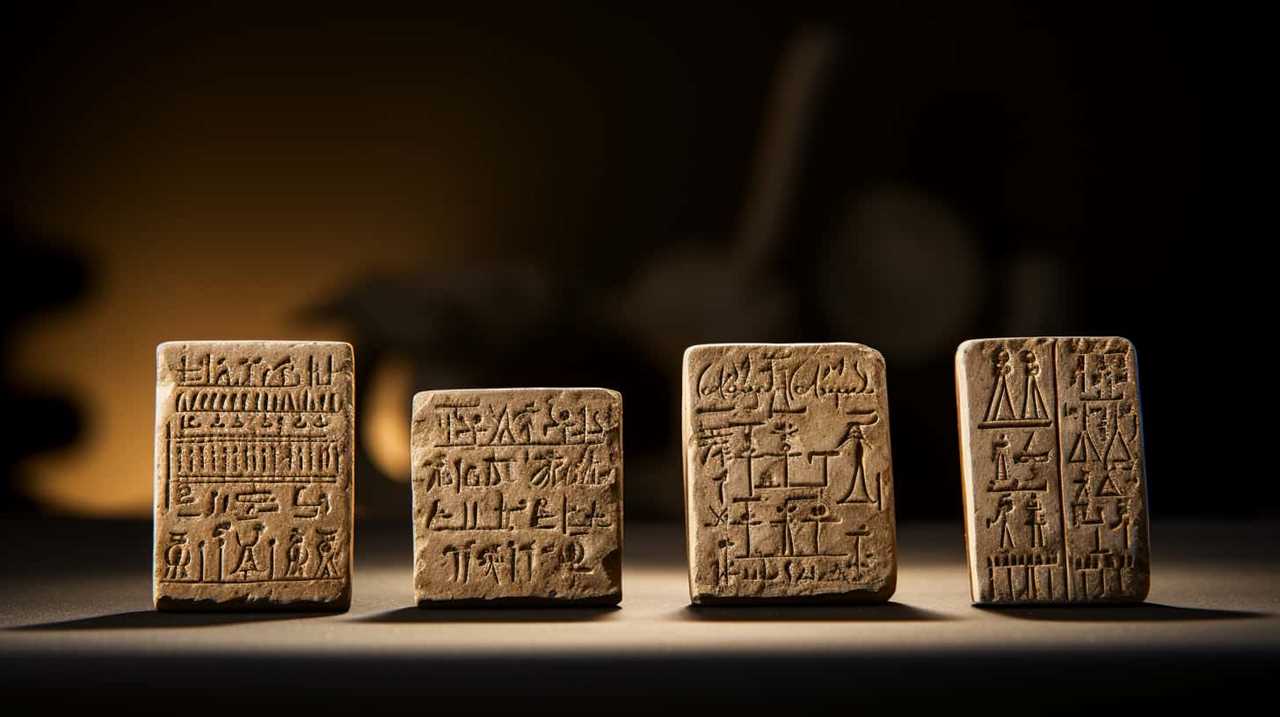
One powerful stoic quote on surrender comes from Epictetus, who said, ‘Do not seek to have events happen as you want them to, but instead want them to happen as they do happen, and your life will go well.’ This quote reminds us that we’ve no control over external events, and it’s futile to resist or try to change them. Instead, we should accept them as they’re and focus on our own inner state.
Another stoic quote on letting go comes from Marcus Aurelius, who said, ‘Accept the things to which fate binds you and love the people with whom fate brings you together, but do so with all your heart.’ This quote emphasizes the importance of accepting our circumstances and the people in our lives. It encourages us to embrace them fully, without resistance or judgment.
By accepting what we can’t change and letting go of our attachments, we free ourselves from unnecessary suffering and find peace within.
Quotes on Stoic Wisdom
When it comes to facing challenges, Stoic wisdom offers valuable insights that can help us develop resilience and navigate through difficult times.
Stoicism emphasizes the importance of internal strength and the ability to control our own thoughts and reactions.
Stoic Quotes for Resilience
Conquering challenges requires embodying stoic wisdom, which can be achieved by embracing resilience through powerful stoic quotes.
Stoicism quotes on inner strength serve as a guiding light, reminding us to stay strong and resilient in the face of adversity. One such quote by Marcus Aurelius states, ‘You have power over your mind – not outside events. Realize this, and you’ll find strength.’ This quote emphasizes the importance of focusing on what we can control, our own thoughts and actions, rather than being consumed by external circumstances.
Another stoic quote by Epictetus encourages us to develop resilience by accepting and adapting to the challenges we face: ‘It’s not what happens to you, but how you react to it that matters.’ This quote reminds us that our perception and response to challenges are within our control.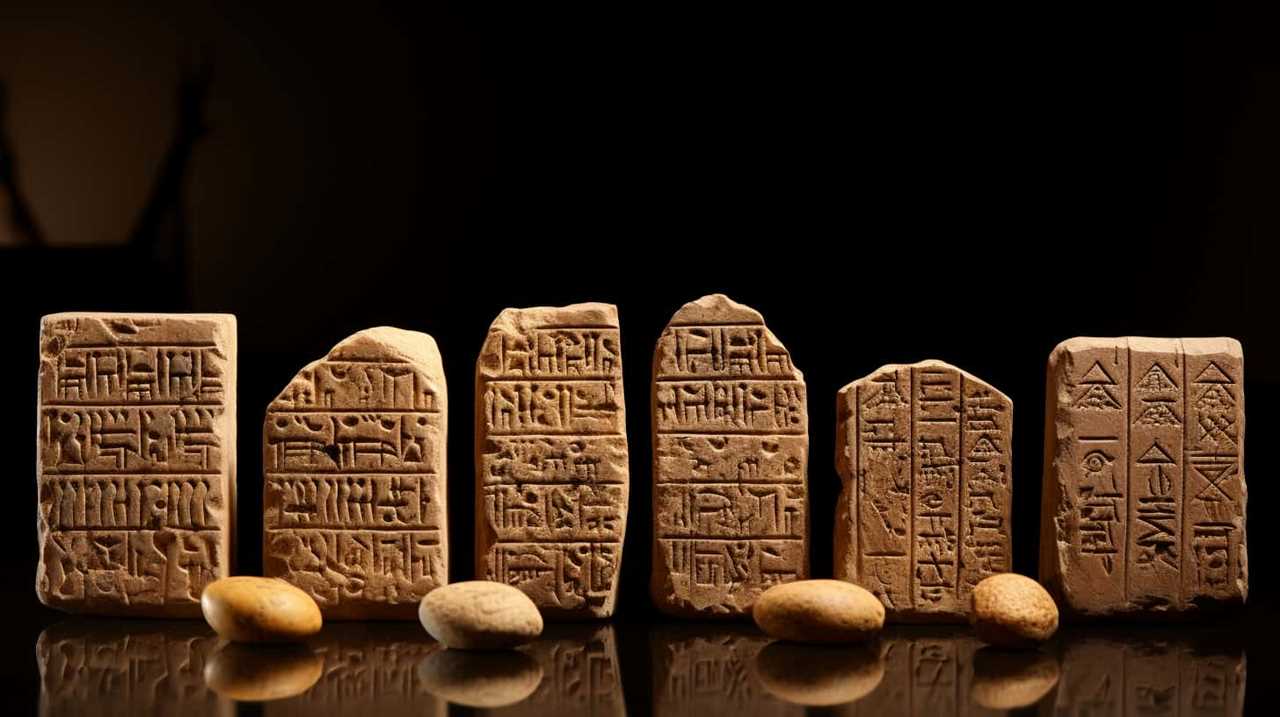
Applying Stoic Wisdom
To apply stoic wisdom in our lives, we can draw inspiration from powerful stoicism quotes that offer valuable insights and guidance. Stoic teachings, when applied in daily life, can help us navigate challenges with resilience and inner strength. By embracing stoic principles, we can cultivate a mindset that allows us to focus on what is within our control, rather than getting caught up in external circumstances. This shift in perspective empowers us to approach life’s difficulties with equanimity and acceptance. Stoicism teaches us to detach ourselves from outcomes and to instead focus on our own actions and attitudes. Through practicing gratitude, mindfulness, and self-reflection, we can develop a stoic mindset that enables us to face challenges head-on and find peace amidst chaos.
| Stoic Wisdom Quotes | Explanation |
|---|---|
| "The only thing you control is your own mind." | This quote reminds us that we have the power to control our thoughts and reactions, regardless of external circumstances. |
| "What upsets people is not things themselves, but their judgments about these things." | By recognizing that our judgments and interpretations shape our emotional responses, we can choose to adopt more rational and balanced perspectives. |
| "The obstacle is the way." | This quote emphasizes the stoic belief that obstacles and challenges are not to be avoided, but rather embraced as opportunities for growth and self-improvement. |
| "Amor fati." | This Latin phrase, meaning "love of fate," encourages us to embrace all aspects of our lives, both positive and negative, as essential parts of our journey. |
Stoicism Quotes on Inner Strength
As we explore Stoicism Quotes on Inner Strength, it becomes clear that the philosophy emphasizes the cultivation of resilience and resilience in the face of adversity. Stoic teachings provide valuable insights into developing our inner strength and overcoming challenges.
Here are three powerful stoicism quotes on self-control and overcoming adversity:
- ‘You have power over your mind – not outside events. Realize this, and you’ll find strength.’ – Marcus Aurelius
This quote reminds us that our strength lies within our ability to control our thoughts and reactions, rather than trying to control external circumstances. By focusing on our own attitudes and actions, we can cultivate inner resilience and face any adversity with grace.
- ‘The greater the difficulty, the more glory in surmounting it.’ – Epictetus
Epictetus teaches us that challenges are opportunities for growth and self-improvement. Instead of avoiding difficulties, we should embrace them as chances to showcase our inner strength and achieve greatness.
- ‘The obstacle is the way.’ – Ryan Holiday
This quote highlights the Stoic belief that obstacles aren’t setbacks but rather the path to success. By reframing obstacles as opportunities, we can tap into our inner strength and find creative solutions to overcome any adversity we encounter.
Stoic philosophy encourages us to develop our inner strength by practicing self-control and embracing challenges. By cultivating resilience and facing adversity head-on, we can conquer any obstacles that come our way and achieve true mastery in life.
Quotes on Stoic Discipline
With a focus on cultivating inner strength and resilience, stoic philosophy emphasizes the importance of discipline in navigating life’s challenges. Stoic discipline techniques provide a framework for developing self-control, mental fortitude, and emotional stability. These techniques, when applied in daily life, enable individuals to overcome obstacles and lead a virtuous and fulfilling existence.
To delve deeper into the concept of stoic discipline, let’s examine a table that highlights some key quotes from stoic philosophers on this topic:
| Stoic Discipline Quotes | Philosopher | Meaning |
|---|---|---|
| "The chief task in life" | Epictetus | The primary goal in life is to discipline our desires. |
| "Discipline your mind" | Marcus Aurelius | Train your mind to focus on what you can control. |
| "Self-control is strength" | Seneca | True strength lies in mastering oneself. |
| "Learn to be indifferent" | Epictetus | Embrace indifference towards external events. |
| "Endure and renounce" | Marcus Aurelius | Bear hardships and let go of attachments. |
These quotes underscore the importance of discipline in stoic philosophy. By practicing self-control, focusing on what is within our control, embracing indifference towards external outcomes, and letting go of attachments, we can navigate life’s challenges with resilience and inner strength.
Incorporating stoic discipline in daily life requires consistent effort and conscious decision-making. It involves recognizing our own desires, emotions, and reactions, and actively working towards aligning them with reason and virtue. By adopting stoic discipline techniques, we can cultivate a sense of inner harmony, withstand adversity, and live a life guided by wisdom and tranquility.
Stoic Quotes on Embracing Change
Embracing change can be challenging, but it’s important to recognize the hidden benefits that come with it.
Stoicism offers a valuable guide to adaptability, reminding us that change is inevitable and it’s how we respond to it that truly matters.
Embracing Change’s Hidden Benefits
Change brings about numerous hidden benefits that we, as individuals, often fail to recognize. Embracing change can be intimidating, as it requires us to step out of our comfort zones and face the unknown. However, when we overcome our fear of change, we unlock a world of possibilities and growth.
Here are three hidden benefits of embracing change:
- Personal growth: Change forces us to adapt and learn new skills, which leads to personal growth and development. It challenges us to step outside of our familiar routines and expand our horizons.
- Resilience: Embracing change teaches us resilience and the ability to bounce back from setbacks. It strengthens our mental and emotional muscles, preparing us to face future challenges with a positive mindset.
- Opportunities for success: Change often brings new opportunities that we may not have encountered otherwise. Embracing change opens doors to new experiences, relationships, and achievements that can lead to greater success in our personal and professional lives.
Stoicism’s Guide to Adaptability
When we embrace change, we gain valuable insights and practical wisdom from the teachings of Stoicism on adaptability, as exemplified by the following powerful stoic quotes.
The stoic mindset encourages us to recognize that change is inevitable and that our ability to adapt to it’s crucial for our growth and well-being. Stoicism teaches us that instead of resisting change or being overwhelmed by it, we should embrace it as an opportunity for growth and self-improvement.
By cultivating an adaptable mindset, we can navigate through life’s challenges with resilience and grace. Stoicism provides us with valuable tools and techniques for overcoming adversity and finding strength in the face of change. It reminds us that our true power lies in how we choose to respond to the ever-changing circumstances of life.
As we explore these stoic quotes on adaptability, we’ll gain a deeper understanding of how to embrace change and thrive in any situation.
Now, let’s transition into the next section where we’ll delve into stoic quotes on courage.
Quotes on Stoic Courage
As we delve into the realm of Stoic Courage, it becomes evident that embracing challenges with resilience and fortitude is essential for personal growth and triumph. Stoicism teaches us to face adversity head-on and to cultivate the inner strength needed to overcome any obstacle that comes our way.
Here are three powerful quotes on stoic courage that can inspire us to confront our challenges with unwavering determination:
- ‘The greater the difficulty, the more glory in surmounting it.’ – Epictetus This quote reminds us that the true measure of our courage lies in our ability to conquer difficult situations. By embracing challenges, we not only demonstrate our resilience but also create opportunities for personal growth and self-improvement.
- ‘Courage isn’t the absence of fear, but the triumph over it.’ – Seneca Seneca reminds us that courage isn’t the absence of fear, but rather the ability to face our fears and conquer them. It’s through confronting our fears that we develop the strength and courage necessary to overcome challenges.
- ‘Do not pray for an easy life; pray for the strength to endure a difficult one.’ – Bruce Lee This quote emphasizes the importance of developing inner strength and resilience. Instead of seeking an easy life, we should focus on building the fortitude to withstand difficult times. By doing so, we can face challenges head-on and emerge stronger on the other side.
As we explore stoic courage and its role in overcoming challenges, it becomes evident that finding peace within ourselves is an integral part of the journey.
Stoicism Quotes on Finding Peace
To attain inner tranquility, we must embrace stoicism’s wisdom on finding peace and incorporate its teachings into our lives. Stoicism offers invaluable insights into achieving tranquility and finding inner calm amidst the chaos of life. Let us explore some powerful stoicism quotes on finding peace:
| Quotes on Finding Peace |
|---|
| "The happiness of your life depends upon the quality of your thoughts." – Marcus Aurelius |
| "Peace is not the absence of conflict, but the ability to cope with it." – Epictetus |
| "The greatest obstacle to living is expectancy, which hangs upon tomorrow and loses today. You are arranging what lies in Fortune’s control, and abandoning what lies in yours." – Seneca |
| "If you are disturbed by external events, it is not the events themselves that trouble you, but only your own judgment about them. And it is in your power to wipe out that judgment now." – Marcus Aurelius |
These quotes remind us that finding peace requires a shift in mindset and the ability to control our thoughts and judgments. Stoicism teaches us that true tranquility comes from within, and that external events should not dictate our inner state. By practicing mindfulness and focusing on the present moment, we can cultivate a sense of calm and find peace even in the face of adversity. Stoicism’s wisdom on finding peace serves as a powerful guide for those seeking mastery over their own emotions and inner turmoil.
Quotes on Stoic Virtues
In our journey to conquer challenges, let’s delve into the wisdom of stoic virtues. Stoicism teaches us to cultivate certain qualities that can help us navigate life’s difficulties with resilience and inner strength. Here are some powerful stoic quotes on gratitude and self-control:
- ‘Gratitude isn’t only the greatest of virtues but the parent of all others.’ – Marcus Tullius Cicero
Gratitude is a foundational virtue that enables us to appreciate the present moment and find joy in the simple things. By cultivating gratitude, we can shift our focus from what we lack to what we already have, fostering contentment and resilience.
- ‘No man is free who isn’t master of himself.’ – Epictetus
Self-control is a crucial virtue that allows us to govern our desires, emotions, and actions. By practicing self-control, we can resist impulsive behavior, make rational decisions, and maintain inner calm in the face of challenges.
- ‘He is a wise man who doesn’t grieve for the things which he’s not, but rejoices for those which he has.’ – Epictetus
This quote reminds us of the importance of focusing on what we’ve rather than dwelling on what we lack. By cultivating a mindset of abundance and gratitude, we can find joy and contentment in our present circumstances, regardless of external circumstances.
Incorporating these stoic virtues of gratitude and self-control into our lives can help us navigate challenges with grace and mastery.
Frequently Asked Questions
What Are Some Practical Steps to Cultivate Resilience in Daily Life?
To cultivate resilience in daily life and overcome challenges, we must actively seek out opportunities for personal growth, maintain a positive mindset, and embrace adversity as a chance to learn and become stronger.
How Can Stoic Principles Help Individuals in Accepting Difficult Circumstances?
Stoic principles offer valuable insights for accepting difficult circumstances and overcoming adversity. By embracing the philosophy’s teachings, we can cultivate resilience, find inner strength, and maintain a sense of tranquility amidst life’s challenges.

Are There Any Specific Stoic Teachings That Focus on the Pursuit of Wisdom?
In the pursuit of wisdom, Stoic teachings provide invaluable guidance. By emphasizing self-reflection, rationality, and the cultivation of virtue, Stoicism equips individuals with the tools necessary to navigate life’s challenges and uncover profound truths.
How Can Stoic Philosophy Help Individuals in Developing Inner Strength?
Developing resilience and building mental fortitude are key aspects of stoic philosophy. By teaching us to accept what is beyond our control and focus on what we can change, stoicism empowers us to face challenges with inner strength.
What Are Some Effective Strategies to Practice Stoic Discipline in Modern Society?
In modern society, we can employ various strategies to practice stoic discipline and conquer challenges. By focusing on our inner thoughts, accepting what is beyond our control, and maintaining a sense of gratitude, we can cultivate resilience and inner strength.
How Are the Stoicism Quotes Related to the Strategies for Overcoming Challenges?
Stoicism quotes emphasize the importance of embracing challenges and finding inner strength to overcome them. The stoic strategies for challenges encourage resilience, self-discipline, and the ability to adapt to adversity. By focusing on what is within our control and accepting the things we cannot change, Stoicism offers valuable insights into facing life’s obstacles with courage and grace.
Conclusion
In conclusion, these powerful stoicism quotes provide valuable insights and guidance for conquering challenges in life. By embracing resilience, acceptance, wisdom, inner strength, discipline, embracing change, courage, finding peace, and cultivating virtues, we can navigate through difficult times with grace and determination.
Like a sturdy ship navigating stormy seas, stoicism teaches us to stay steady amidst the waves, always finding our way to calmer waters.
Lauren’s talent in writing is matched by her passion for storytelling. Her love for books and deep understanding of culture and entertainment add a distinct flavor to her work. As our media and press contact, Lauren skillfully bridges the gap between afterQuotes and the broader media landscape, bringing our message to a wider audience.
Ancient Quotations
9 Best Egyptian Hieroglyphic Sayings Deciphered

While delving into the secrets of ancient Egypt, we have unearthed valuable insights hidden within the intricate hieroglyphics. These enigmatic symbols, etched onto the walls of temples and tombs, play a crucial role in understanding the beliefs and culture of a civilization that thrived thousands of years ago.
Join us as we delve into the enchanting world of Egyptian hieroglyphic sayings, deciphering their meanings and unraveling their mysteries. From the timeless wisdom of Ma’at to the eternal flame of Ra, we will explore the profound insights that shaped the lives of the pharaohs and their subjects.
Prepare to embark on a voyage of mastery, as we bring to light the nine best Egyptian hieroglyphic sayings ever deciphered.
Key Takeaways
- Egyptian hieroglyphic sayings provide profound insights into ancient Egyptian beliefs and values.
- Decoding hieroglyphic messages reveals ancient wisdom and offers a deeper understanding of ancient Egyptian society.
- Hieroglyphic sayings emphasize the importance of maintaining a harmonious relationship with the Divine Pharaoh for prosperity and protection.
- Understanding hieroglyphs is crucial for unraveling the mysteries of ancient Egyptian civilization and gaining insights into their culture and history.
The Power of Ma’at
One of the most powerful and enduring concepts in ancient Egyptian civilization is the belief in the power of Ma’at. Ma’at represents the fundamental principle of balance and harmony that governs the universe. The ancient Egyptians believed that maintaining the power of balance, or Ma’at, was essential for the well-being and prosperity of society.
The concept of Ma’at was deeply ingrained in every aspect of Egyptian life, from religious rituals to the administration of justice. It was believed that when Ma’at was upheld, order and stability prevailed. The pharaoh, as the earthly embodiment of Ma’at, was responsible for upholding this balance and ensuring that justice was served.
The power of Ma’at also encompassed the notion of ancient wisdom. The Egyptians believed that the principles of Ma’at were derived from the wisdom of their gods and ancestors. This ancient wisdom guided their understanding of the natural world and their place within it.
The belief in the power of Ma’at continues to resonate throughout history, inspiring countless generations to strive for balance and harmony in their lives. It serves as a reminder of the importance of maintaining equilibrium in a world that’s constantly changing. The power of Ma’at remains an enduring legacy of ancient Egyptian civilization.
Life’s Journey in the Nile
How can we navigate Life’s Journey in the Nile?
The Nile River, with its powerful currents and treacherous waters, serves as a metaphor for the challenges we face in life. Just as the ancient Egyptians relied on the Nile for sustenance and prosperity, we too must navigate the obstacles that come our way and find our inner strength to overcome them.
To evoke emotion in our audience, let’s consider two sub-lists:
Navigating Obstacles:
- The Nile, with its unpredictable floods and dangerous wildlife, symbolizes the hurdles we encounter in life. We must learn to adapt and find alternative paths when faced with unexpected challenges.
- Like the ancient Egyptians who built canals and irrigation systems to control the Nile’s flow, we must develop strategies and tools to overcome obstacles and steer our lives in the desired direction.
Finding Inner Strength:
- The Nile’s journey from the heart of Africa to the Mediterranean Sea is an arduous one. Similarly, our life’s journey requires resilience and perseverance. We must tap into our inner strength to keep moving forward, even in the face of adversity.
- Just as the Nile’s waters provide sustenance to the fertile lands it touches, we must nourish our minds and souls to find the strength to overcome challenges. Cultivating self-care practices and seeking support from loved ones can help us navigate life’s journey with grace and resilience.
Wisdom of the Sphinx
As we explore the subtopic of ‘Wisdom of the Sphinx’, we encounter a trove of hidden riddles and ancient symbols that have fascinated scholars and historians for centuries.
The Sphinx, with its enigmatic gaze and mysterious presence, holds a wealth of wisdom that transcends time.
Sphinx’s Hidden Riddles
After deciphering the best Egyptian hieroglyphic sayings, we discovered the profound wisdom of the Sphinx’s hidden riddles.
The Sphinx, with its enigmatic expression and majestic presence, has captivated the human imagination for centuries. Its riddles, carefully crafted and tucked away in the sands of time, hold the key to unlocking ancient secrets.
These riddles aren’t mere puzzles to be solved, but rather profound teachings that offer insight into the human condition and the mysteries of existence. They challenge our intellect and provoke introspection, pushing us to delve deeper into the realms of knowledge and wisdom.
The Sphinx’s riddles, when deciphered, reveal truths that are timeless and universal, reminding us of the power of ancient wisdom in guiding our modern lives.
Now, let’s explore the ancient symbols and their modern meaning.
Ancient Symbols, Modern Meaning
We have uncovered the modern meaning behind the ancient symbols of the Sphinx, revealing a wealth of wisdom.
Egyptian hieroglyphic symbols have intrigued scholars and enthusiasts for centuries, serving as a window into the ancient Egyptian civilization. Decoding these symbols allows us to gain insight into the beliefs, values, and knowledge of the ancient Egyptians. The hieroglyphs often depict aspects of daily life, religious rituals, and divine beings.
Through careful analysis and comparison, we’ve been able to decipher the hidden messages encoded in these symbols, unveiling their true significance. These ancient symbols, once enigmatic, now offer profound insights into the mindset and worldview of the Egyptian people.
Decoding Wisdom Through History
Continuing our exploration of ancient Egyptian hieroglyphic symbols, let’s delve into the profound wisdom revealed by the enigmatic Sphinx. Decoding ancient wisdom through the historical symbolism of this majestic creature allows us to tap into the collective knowledge of our ancestors.
Here are two sub-lists that evoke emotion in our audience:
- Eternal Guardians of Mysteries:
- The Sphinx stands as a testament to the timeless pursuit of knowledge.
- Its inscrutable gaze beckons us to uncover the secrets of the past.
- Unveiling the Truth Within:
- Through deciphering hieroglyphic messages, we gain access to the ancient wisdom embedded in the Sphinx’s engravings.
- The historical symbolism of this iconic figure reveals profound insights about life, death, and the human condition.
The Magic of the Ankh
Rarely do we encounter an ancient Egyptian symbol as powerful and enigmatic as the Ankh. The Ankh, also known as the Key of Life, is a symbol that holds deep significance in Egyptian culture. It is believed to represent eternal life and immortality, making it one of the most revered symbols in ancient Egypt.
The symbolism of the Ankh is multi-faceted and rich in meaning. Its looped top represents the eternal cycle of life, while the vertical line represents the path of the soul. Together, they symbolize the union of opposites, the balance between life and death, and the eternal nature of the soul.
In Egyptian mythology, the Ankh was often associated with gods and goddesses, who were believed to hold the power of life and death. It was also believed to be a talisman that could bring protection, good fortune, and fertility to its wearer.
To better understand the symbolism of the Ankh, let us explore its various meanings and interpretations in the table below:

| Symbolism | Meaning |
|---|---|
| Eternal Life | Represents the concept of life beyond death |
| Balance | Symbolizes the harmony between opposites |
| Fertility | Associated with the power of creation and reproduction |
As we delve deeper into the mysteries of ancient Egypt, the Ankh continues to captivate us with its magic and profound symbolism. It serves as a reminder of the enduring legacy and wisdom of this ancient civilization.
Embracing the Eye of Horus
When exploring the captivating world of Egyptian hieroglyphic sayings, one can’t overlook the significance of embracing the Eye of Horus. This ancient symbol holds deep symbolic meaning, representing protection, healing, and intuition.
Horus, the falcon-headed god, is revered as a powerful and watchful deity, making the Eye of Horus a potent talisman to embrace and invoke.
Understanding the cultural significance of this symbol allows us to delve into the rich tapestry of Egyptian beliefs and traditions.
Symbolic Meaning of Eye
We are fascinated by the Symbolic Meaning of the Eye, as it encompasses the embrace of the Eye of Horus. The ancient Egyptians attributed great symbolic significance to the eye, believing it to be a powerful symbol of protection, healing, and knowledge. The mythological origins of this symbolism can be traced back to the Eye of Horus, a symbol of the god’s all-seeing power and divine protection.
The Eye of Horus represents clarity and vision, serving as a reminder to seek wisdom and enlightenment. It symbolizes the concept of ‘utchat,’ or the eye of Ra, which was believed to bring protection against evil forces and ward off negative energy.
Understanding the symbolic meaning of the eye allows us to delve deeper into the rich cultural and spiritual traditions of ancient Egypt, unlocking valuable insights into their worldview and beliefs.
Horus as Protective Deity
As believers in the power of ancient Egyptian hieroglyphic sayings, we embrace the protective deity Horus and his association with the Eye of Horus. Horus, often depicted as a falcon-headed god, was one of the most significant deities in the ancient Egyptian pantheon. He was considered the protector and ruler of Egypt, embodying the divine kingship.
Horus’ association with the Eye of Horus adds to his protective role. The Eye of Horus symbolizes royal power, health, and prosperity. Amulets in the shape of the Eye of Horus were worn by both the living and the deceased as a means of protection. These amulets were believed to ward off evil and ensure the wearer’s well-being.
The symbolism of the falcon and the significance of amulets connected to the Eye of Horus demonstrate the enduring belief in Horus as a powerful guardian and protector.
Cultural Significance of Eye
Continuing our exploration of the cultural significance of the Eye of Horus, we delve into its embrace as believers in the power of ancient Egyptian hieroglyphic sayings. The Eye of Horus holds deep cultural symbolism and carries a profound historical interpretation.
The Eye of Horus embodies protection and healing, offering a sense of security and warding off evil forces. It symbolizes the watchful and compassionate eye of a god, providing guidance and wisdom to those who seek it.
The Eye of Horus also represents the concept of resurrection and eternal life. It signifies the cyclical nature of existence, reminding us that life and death are intertwined, and that death is merely a transition to a different state of being.
Understanding the cultural symbolism and historical interpretation of the Eye of Horus allows us to appreciate its significance as a powerful symbol in ancient Egypt. It serves as a reminder of the profound beliefs and values held by the ancient Egyptians, and continues to inspire and captivate us today.
The Balance of Isfet and Ma’at
Exploring the delicate equilibrium between Isfet and Ma’at, we delve into the ancient Egyptian belief system. The importance of balance was a central concept in their worldview, as they sought to maintain harmony in all aspects of life. Isfet, representing chaos, disorder, and injustice, was seen as the antithesis of Ma’at, which symbolized order, balance, and justice.
To understand Isfet and Ma’at, one must grasp the fundamental principles that guided ancient Egyptians. Isfet was associated with actions and behaviors that disrupted the natural order of the universe. It represented negative qualities such as violence, dishonesty, and greed. Ma’at, on the other hand, encompassed positive attributes like truth, harmony, and righteousness. It was believed that upholding Ma’at ensured the smooth functioning of the world and the well-being of individuals.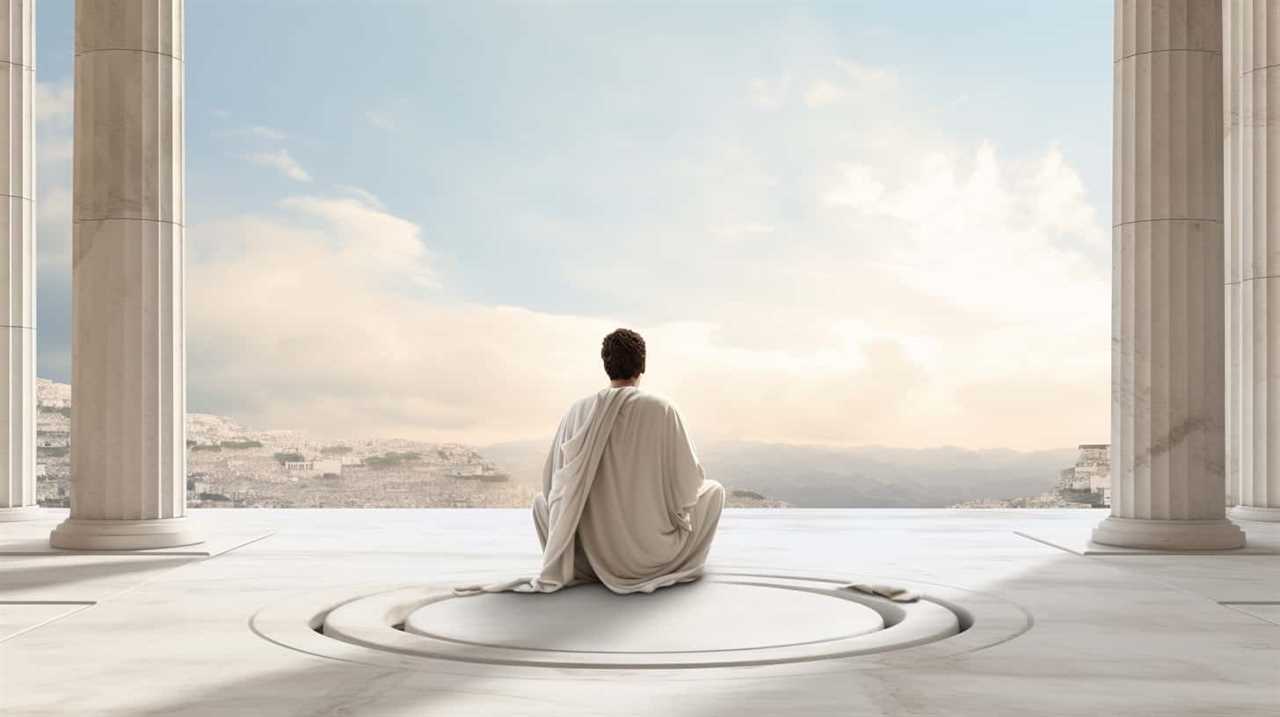
Maintaining the balance between Isfet and Ma’at was vital for the Egyptians. They believed that if Isfet gained dominance, chaos would prevail, leading to disasters and calamities. Therefore, individuals were expected to live their lives in accordance with Ma’at, striving to uphold its principles in their thoughts, words, and actions.
Rebirth Through the Scarab Beetle
The Scarab Beetle symbolizes rebirth in ancient Egyptian hieroglyphic sayings. The ancient Egyptians believed that the scarab beetle, also known as the dung beetle, represented the cycle of life and death. This symbolism can be seen in various aspects of their culture and religious beliefs.
The scarab beetle’s behavior of rolling dung into a ball and burying it in the ground was seen as a representation of the sun’s daily journey across the sky. Just as the sun would disappear at night and rise again in the morning, the scarab beetle would emerge from the ground, symbolizing rebirth and renewal.
The scarab beetle also played a significant role in the afterlife beliefs of the ancient Egyptians. They believed that the beetle was associated with the god Khepri, who was responsible for the creation and renewal of life. The scarab amulets, often placed on the mummified bodies of the deceased, were believed to provide protection and ensure a successful journey into the afterlife.

In addition to its symbolism of rebirth, the scarab beetle also represented fertility and regeneration. The Egyptians believed that the beetle possessed the power to bring about new life and restore what was lost. This belief in the scarab beetle’s ability to bring about renewal and transformation is a testament to the profound impact it had on ancient Egyptian beliefs.
Respecting the Divine Pharaoh
As we delve further into ancient Egyptian hieroglyphic sayings, it is evident that our reverence for the Divine Pharaoh is paramount. The Egyptians believed that the Pharaoh was not just a mortal ruler, but a divine being with a direct connection to the gods. This belief was deeply ingrained in their society and shaped their rituals and customs.
To demonstrate the importance of respecting the Divine Pharaoh, let us examine some hieroglyphic sayings that highlight this reverence:
| Hieroglyphic Saying | English Translation |
|---|---|
| 👑👁️👑 | The Pharaoh is the all-seeing eye of the gods. |
| ⚡🌞⚡ | The Pharaoh is the powerful sun, radiating divine energy. |
| 🌺👑🌺 | The Pharaoh is the beautiful flower, blooming with divine grace. |
| 🌍👑🌍 | The Pharaoh is the earth itself, guiding and protecting his people. |
| ⚖️👑⚖️ | The Pharaoh is the just balance, ensuring harmony and order in the kingdom. |
These sayings reveal the Egyptians’ deep respect for their divine ruler. They saw the Pharaoh as the embodiment of the gods on Earth, responsible for maintaining the balance between the mortal and divine realms. Through ancient rituals and ceremonies, they sought to honor and appease the Pharaoh, believing that his favor would bring prosperity and protection to the kingdom.
Understanding the significance of these hieroglyphic sayings allows us to gain insight into the ancient Egyptians’ mindset and worldview. It highlights the central role played by the Divine Pharaoh in their society and underscores the importance they placed on maintaining a harmonious relationship with their ruler.
The Eternal Flame of Ra
Continuing our exploration of ancient Egyptian hieroglyphic sayings, let’s delve into the captivating realm of ‘The Eternal Flame of Ra’. In ancient religious practices, the solar deity Ra held a significant place of reverence and worship. The Eternal Flame of Ra symbolized the eternal power and presence of this mighty deity.
Here are two sub-lists that will surely evoke emotions in our audience:
- The Divine Light:
- The Eternal Flame of Ra represents the divine light that illuminates the world, bringing warmth, life, and energy to all living beings.
- This sacred flame is believed to be the embodiment of Ra’s eternal power, radiating brilliance and providing spiritual guidance to the ancient Egyptians.
- The Cycle of Life:
- The Eternal Flame of Ra also symbolizes the cyclical nature of life, mirroring the rising and setting of the sun each day.
- Just as the sun rises and sets, the flame of Ra represents the eternal cycle of creation, death, and rebirth, reminding us of the impermanence of all things.
Understanding the significance of the Eternal Flame of Ra allows us to gain deeper insight into the ancient religious practices of the Egyptians. It reminds us of their profound connection to the sun and their belief in the eternal power and presence of the solar deity.
Frequently Asked Questions
How Were Hieroglyphics Deciphered and What Methods Were Used?
To decipher hieroglyphics, we utilized various methods such as the Rosetta Stone and the work of key figures like Jean-François Champollion. By comparing known languages, we identified phonetic and symbolic elements, unlocking the secrets of ancient Egypt’s written language.
Are There Any Hieroglyphic Sayings That Are Still Considered Undeciphered or Mysterious?
Undeciphered hieroglyphic sayings and mysterious hieroglyphic phrases continue to captivate scholars. Despite our best efforts, these enigmatic messages remain elusive, shrouded in the ancient secrets of the Egyptian civilization.
Can You Provide Examples of Hieroglyphic Sayings That Have Been Widely Used in Ancient Egyptian Culture?
Examples of widely used hieroglyphic sayings in ancient Egyptian culture include phrases like "life, prosperity, and health" and "eternal life." These sayings were deciphered using methods such as the Rosetta Stone and the work of Champollion.
What Role Did Hieroglyphic Sayings Play in Ancient Egyptian Religious Practices?
Hieroglyphic sayings played a pivotal role in ancient Egyptian religious practices. They were not only a form of artistic expression, but also held deep significance in the literature of the time.
Are There Any Hieroglyphic Sayings That Have Been Found to Have Multiple Interpretations or Meanings?
Multiple interpretations and meanings are common in hieroglyphic sayings. The complexity and symbolism of the ancient Egyptian language allow for various understandings, adding depth to the study of hieroglyphics.
Are the Deciphered Egyptian Hieroglyphic Sayings Similar to the Translated Mesopotamian Clay Tablet Inscriptions?
The deciphered Egyptian hieroglyphic sayings are not exactly similar to translating Mesopotamian clay tablet inscriptions. While both involve unraveling ancient texts, the languages, writing systems, and cultural contexts are distinct. The Egyptian hieroglyphs are pictorial, while Mesopotamian cuneiform uses wedge-shaped characters. Each presents unique challenges to translators.
Can the Deciphering of Nietzsche Morality Quotes Provide Insight into Deciphering Egyptian Hieroglyphic Sayings?
The study of Nietzsche morality quotes decoded can provide valuable insight into deciphering Egyptian hieroglyphic sayings. Both involve the interpretation of philosophical and cultural symbols, and understanding one can enhance the understanding of the other. The process of decoding one can inform and enrich the process of decoding the other.
Conclusion
In the majestic tapestry of ancient Egypt, the hieroglyphic sayings serve as hidden gems of wisdom, guiding us through the complexities of life. Like the sacred Nile, they flow with the power of Ma’at, illuminating the path of our life’s journey.
They reveal the profound knowledge held by the Sphinx, the magic woven into the Ankh, and the eternal flame of Ra. Through the scarab beetle, we learn the beauty of rebirth, while the divine pharaoh teaches us the importance of respect.
These hieroglyphic sayings are a treasure trove of enlightenment, waiting to be unraveled by those who seek the secrets of Egypt’s ancient past.
Lauren’s talent in writing is matched by her passion for storytelling. Her love for books and deep understanding of culture and entertainment add a distinct flavor to her work. As our media and press contact, Lauren skillfully bridges the gap between afterQuotes and the broader media landscape, bringing our message to a wider audience.
-

 Funerals Quotations3 months ago
Funerals Quotations3 months agoSoothing Hope Quotes for Funeral Reflections
-

 TV Shows Quotations2 months ago
TV Shows Quotations2 months agoTop 4 Unforgettable TV Drama Monologues
-

 Movies Quotations4 weeks ago
Movies Quotations4 weeks agoUnforgettable Cult Movie Quotes: A Compiled List
-

 Education and Knowledge1 week ago
Education and Knowledge1 week agoUnlock Success with the Best Study Motivation Quotes
-

 Travel and Exploration Quotations3 weeks ago
Travel and Exploration Quotations3 weeks agoWisdom on Waves: Notable Maritime Explorer Quotations
-

 Education and Knowledge1 week ago
Education and Knowledge1 week agoBest Study Quotes: Unlock Student Potential!
-

 Military Quotations2 months ago
Military Quotations2 months agoInspiring Military Quotations for Strength & Honor
-

 Travel and Exploration Quotations3 weeks ago
Travel and Exploration Quotations3 weeks agoWhy Travel Teaches Unforgettable Life Wisdom?


















